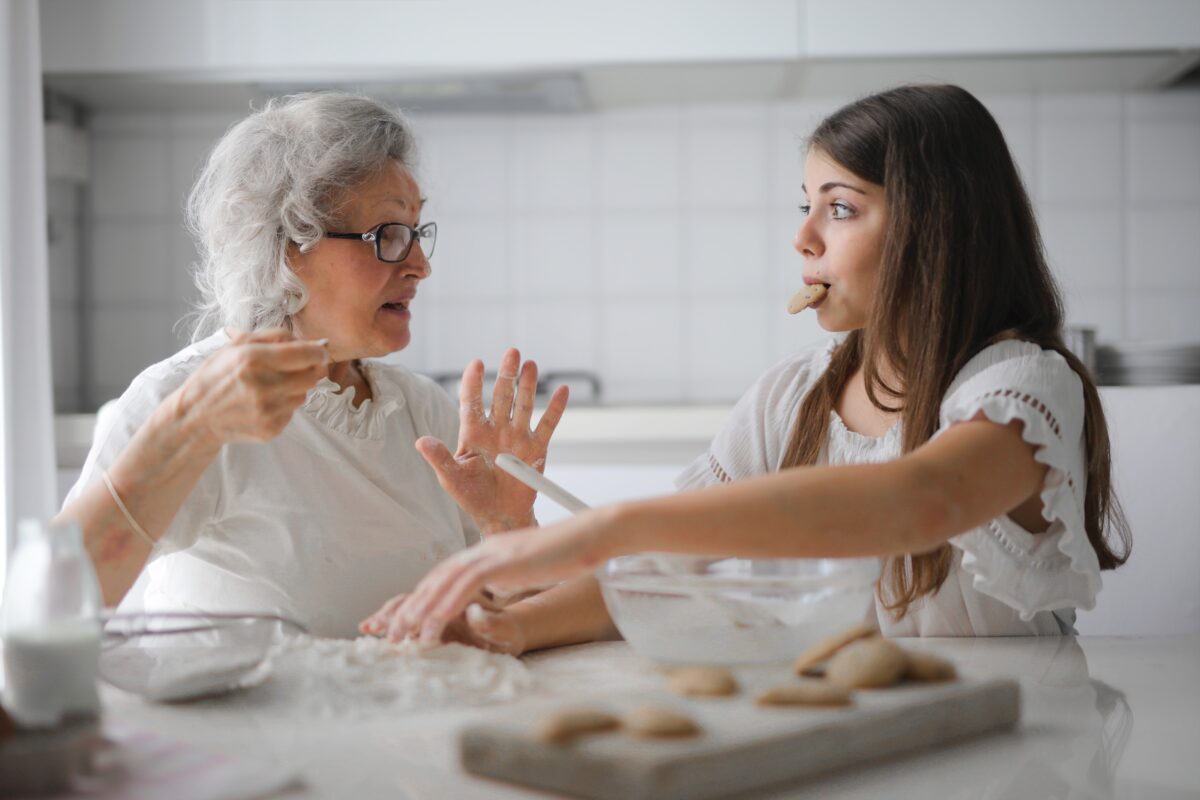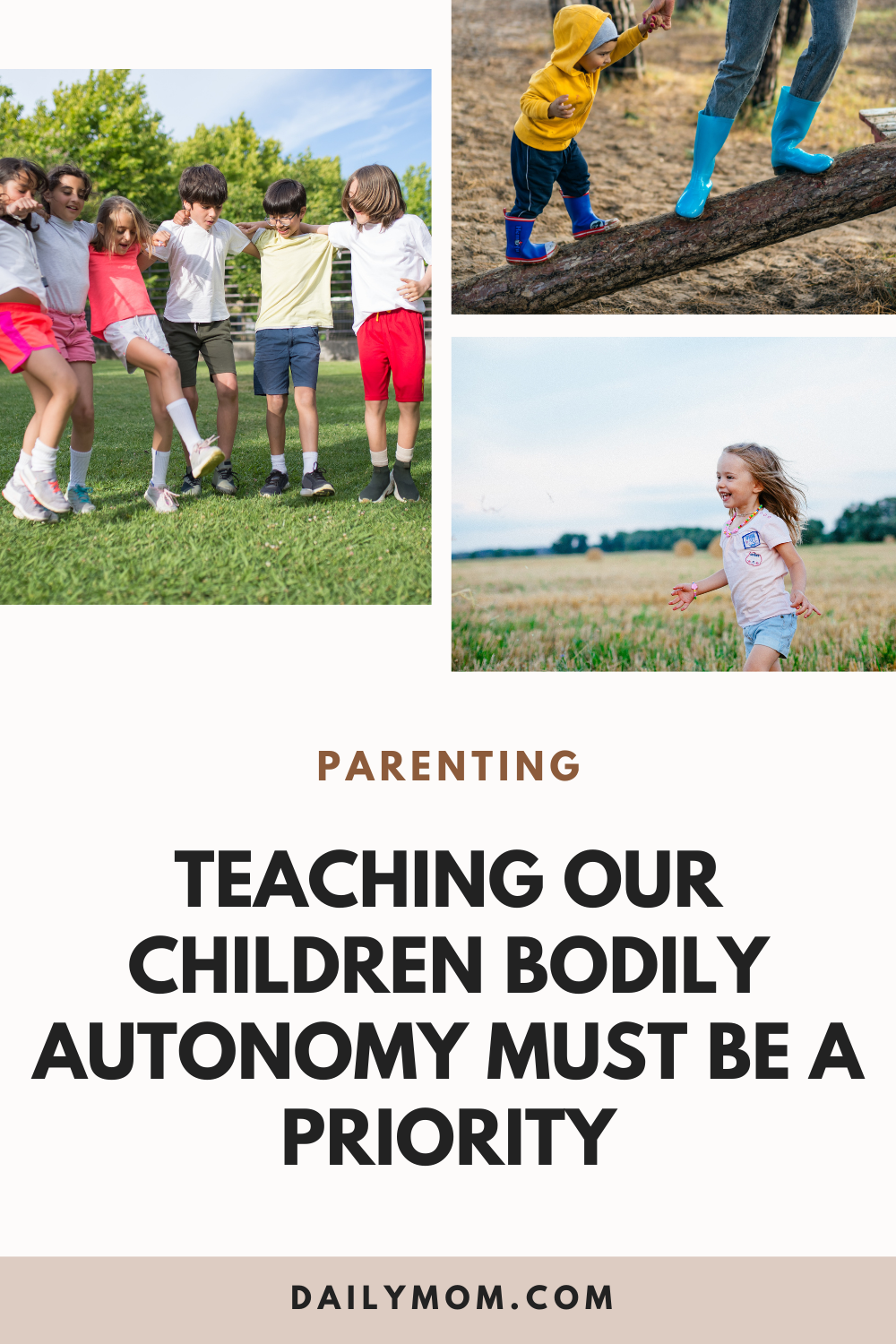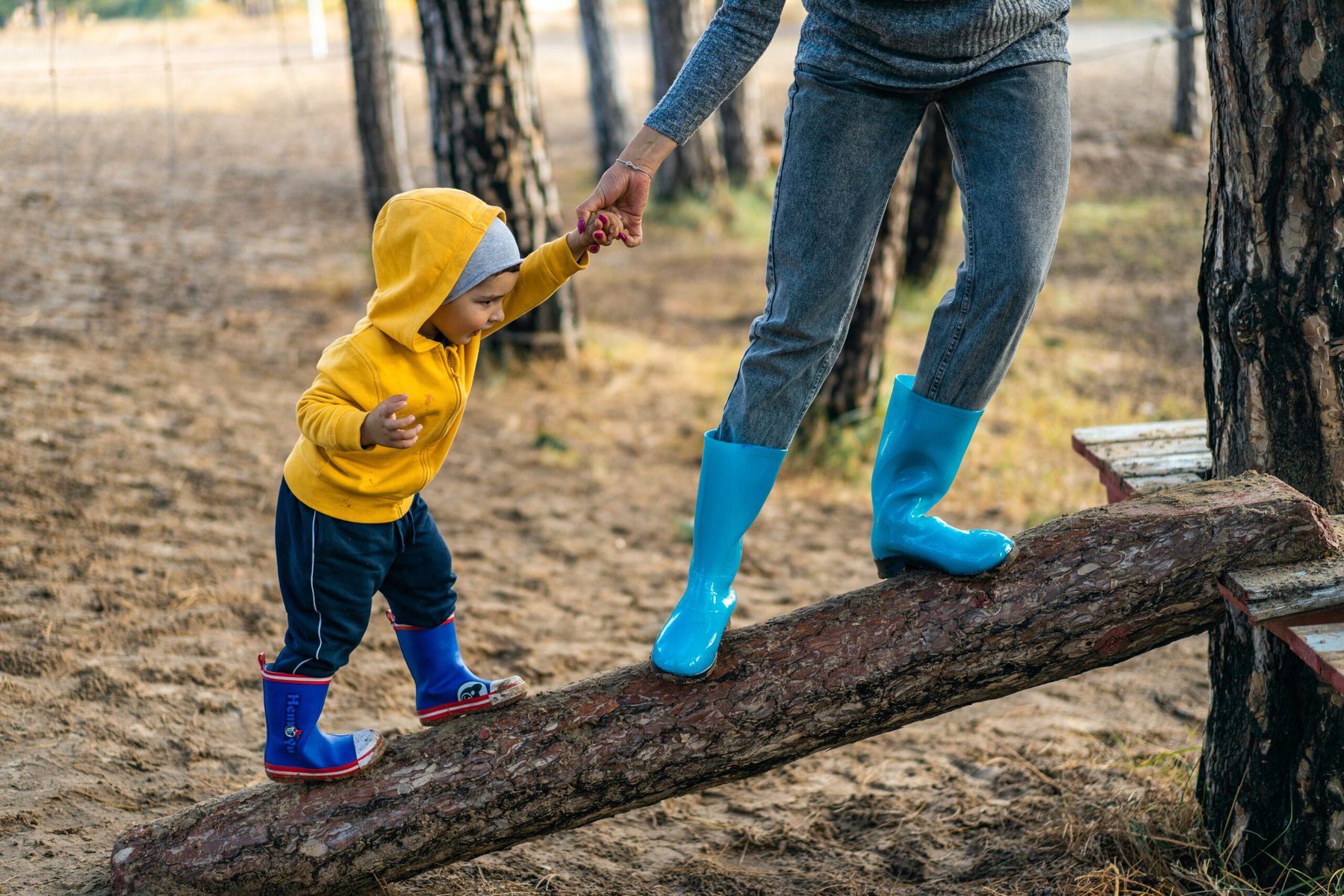The media surrounding Roe V Wade has opened the floodgates for worry, including arguments such as religious oppression to medical transparency and even medical coverage. Ownership over self, for men and women alike, including personal and social responsibility, boils down to one thing: bodily autonomy.
Read More: 5 Self-Control Tips and Activities for Kids
It is not uncommon for children to be told to “hug” or “kiss” family members, even if they do not want to. It’s not uncommon for children to experience double standards when it comes to dress codes at school, and it’s certainly not uncommon for children to be told “you’re overreacting, it’s not that bad.” By teaching children the inviolability of their bodies and minds, we are empowering them to be confident and responsible for standing up for themselves and their peers for their entire lives.
Nourish Bodily Autonomy In Early Child Development

By maintaining awareness of bodily autonomy in your daily living and raising your children, you are paving the way to teaching confidence of consent to your children. This is not limited to personal relationships between your child and potential romantic interests in their teenage years, but early relationships with their peers at school, relatives, and acquaintances in their daily living.
Read More: Self-Directed Learning vs. Progressive Learning
Bodily autonomy that is taught and consistently nourished from a young age should use language that is age-appropriate. When starting a conversation about consent, use words like “body”, “space”, and “touch”. Help them to learn the correct words for all of their body parts, including private parts. This will help them understand there is nothing shameful or dirty about their body.

Read More: 6 Simple Ways to Help Kids Cope with Changes
Start the conversation about different ways of greeting and touching with your child. This ranges from fist-bumps to high-fives, and even big bear hugs! Remind them that their body is their own business and that even before hugging a friend at school, they should always ask permission. Bodily autonomy that is taught and practiced during early childhood creates confident young people who are able to confidently protect themselves from unwanted or unsafe touching, and if it comes down to it, they are more comfortable disclosing inappropriate behavior.
Practicing Bodily Autonomy Is Not Just For Children

Pregnant people know the importance of consent. From unwelcomed belly rubs by strangers in the grocery store to personal questions asked without hesitation, there is nothing quite like the pregnancy experience to remind you that you need to take control of your bodily autonomy.
This is not only important for you, but also for the children watching you. By firmly maintaining personal boundaries and declining unwelcome touching or answering uncomfortable questions, you are modeling the importance of consent to your child(ren). The lifelong practice of bodily autonomy is necessary, but it gets easier with time and practice.

Bodily autonomy does not necessarily involve direct contact, it can also be a mindset. Conversations had with or around your child can affect this and should be closely monitored. For example, until the 1970s, “the rape laws in every state in the union included an exception if the rapist and the victim were husband and wife.” The victim just “had to deal with it” and the needs of the offending spouse meant more than the victim’s worth. This was just how things were for many people for many, many years.
Read More: Rape Culture is Real: Talking to our Boys About Consent
This was only 50 years ago, and the mindset has not fully shifted. Some religious sects believe that women should submit to their husbands in every way, no matter what the woman wants. This is simply not the case. It’s wrong and detrimental to the human mind and body, representing a toxic, unhealthy approach to sexuality that puts bodily autonomy on the back burner.
No matter who we are now, or how confidently we can say the word “no” and go on about our lives, many of us can recall at least one incident where we just let something happen. Whether it was a hug from a stranger, an unwelcome comment or touch, or just going with the flow to avoid conflict, there are times we wish that we had said something and stuck up for ourselves.
By teaching and training our young people that their bodies are their own, and theirs to do with as they wish, we are arming them with the confidence many wish they’d had at another point in their lives. Whether it’s to make a medical decision for their own good, to report harassment, or to help themselves and others feel safe, practicing steady and constant bodily autonomy in our daily lives and letting our children witness it adds fuel to their power and paves the way for a successful life that is based on consent, communication, and mutual respect.
Photo Credits: Pexels
WANT TO READ MORE?
It is time to stop reducing the female population to a needy group that requires large-scale social movements to effect change, rather we need to teach our young ladies to stand up for themselves.
💖 NEWSLETTER: DAILY READS IN YOUR INBOX 💖
Sign up to receive our picks for the best things to do, see and buy so you can relax and focus on more important tasks! Let us help you be the best version of yourself you can be!
GET MORE FROM DAILY MOM, PARENTS PORTAL
Newsletter: Daily Mom delivered to you
Facebook: @DailyMomOfficial
Instagram: @DailyMomOfficial | @DailyMomTravel
YouTube: @DailyMomVideos
Pinterest: @DailyMomOfficial
📌 LOVE IT? PIN IT!📌










































